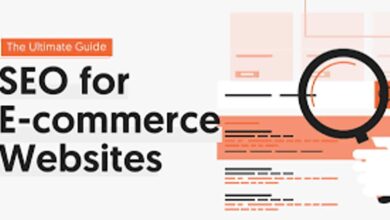
Every brand wants its website to be the number one result of every search engine query. To achieve this, they implement almost every search engine optimization strategy they ever read about.
Unfortunately, despite their vast investment, their search engine appearance and leads are worse than before, and if there is any improvement, it does not justify the investment.
If you are in a similar situation, the reason your SEO campaign is failing is not because Google or any targeted search engine has anything against your site.
SEO is not buying or cheating your way to the top of SERPs; it requires diligence and patience.
If you can put in the work and collaborate with the right team, the result will last a long time, even after you stop investing in it.
Problem 1: Misunderstanding what SEO really means
“The term SEO has been loosely used to the extent that its meaning is now confused with other digital marketing strategies such as content marketing” says Zach Hoffma, CEO of internet marketing agency Exults.
SEO stands for Search Engine Optimization. It is a process of improving a website’s visibility on search engines. SEO can significantly improve your organic traffic.
A search engine-optimized web page will have a higher ranking in search results pages (SERPs). The higher your web page search result ranking, the more attention your site gets.
The first pages of Google capture 88 percent of search traffic clicks, with the first organic search result garnering an average click-through rate of 28.5 percent.
Ranking #1 is significantly more valuable than any other position in the SERPs.
In a bid to rank on the first page, many websites deploy different strategies that decrease their ranking instead of helping it. There are lots of reasons why an SEO strategy fails.
Read Also: 7 Essential Tips for Google Ads Optimization
Problem 2: Targeting the wrong keywords
Keywords have always played a significant role in any SEO strategy. They help you understand the most probable thing users will search for and the content you need to publish to appear in their search results.
Website owners make the mistake of targeting a vast pool of keywords. They channel less attention and investment to keywords that matter to their brand. You do not need to target every keyword; focus on those closely related to your business.
Also, understand the difference between long tail and short tail keywords. The significant difference between long-tail and short-tail keywords is popularity. Many people search for short-tail keywords, with only a few searching for long tail.
Due to the high volume of searches for short-tail keywords, many brands focus on ranking for them. Some go a step further to purchase these keywords to beat competitors.
This makes ranking for long tail keywords easier, as there is lower competition for them, except that you may get less search visibility.
When choosing keywords related to your business, watch out for low-competition and high-traffic keywords, especially if you are a startup or small brand. They can increase your chances of ranking on the first page of search engine results.
Be willing to evaluate your keyword strategy from time to time. If you notice any of the following, then your SEO keyword strategy sucks and needs re-evaluation:
- High bounce rate, i.e., low time on page
- No organic visibility on search engines
- High impressions but low click-through rates
Problem 3: Search engine algorithm
Every search engine has an algorithm determining which webpage ranks for a search query. Google commands over 90 percent of searches globally and as high as 94 percent of searches conducted on mobile gadgets.
Google search algorithm examines factors such as keywords query by the user, the relevance of your content to the user’s query, your site’s mobile friendliness, domain authority, and your location.
Search engine companies want to provide the best source of information for their users’ queries. Therefore, high priority is usually placed on the authenticity and relevance of your content to their users’ queries.
Outdated content will also rank lower, hence the need to continually update your SEO content with the most recent details to remain relevant to search queries.
While the algorithm examines this, it also considers webpages with the best user experience, and this is measured based on mobile friendliness and load speed; remember, most searches are conducted on mobile gadgets.
You can use tools like Google’s mobile-friendly test and PageSpeed Insights to check your site’s usability data.
Problem 4: Misuse of AI-generated content
When it comes to SEO, content is king. The more search-engine-optimized content you have on your website, the higher your chance of increasing your organic traffic.
Artificial Intelligence (AI) has been designed to give instant and detailed answers to users’ queries such that it can be made to write an over 500-word article about any topic in a few seconds.
Many website owners and content creators are intrigued by these new inventions and deploy them in their SEO strategy. The reason is simple: it generates more content than humans in less time and is typically cheaper.
AI content can be robotic and sometimes inaccurate. While it can be cost-effective to use AI to generate content around your targeted keywords, it is recommended that humans edit and optimize them to ensure they are factual and well-written.
Google, for instance, does not penalize AI-generated content but emphasizes that its algorithm only rewards high-quality content regardless of how it is produced.
Problem 5: Working with the wrong SEO specialists
You must work with an SEO agency with professionals with skills that align with your brand goals.
Refrain from sacrificing quality for budget, and avoid any agency that overpromises. Only work with them if they can show you the results they achieved with customers operating in your industry.
Only contract an SEO specialist after first outlining Key Performance Indicators (KPIs) that can be used to track results.







